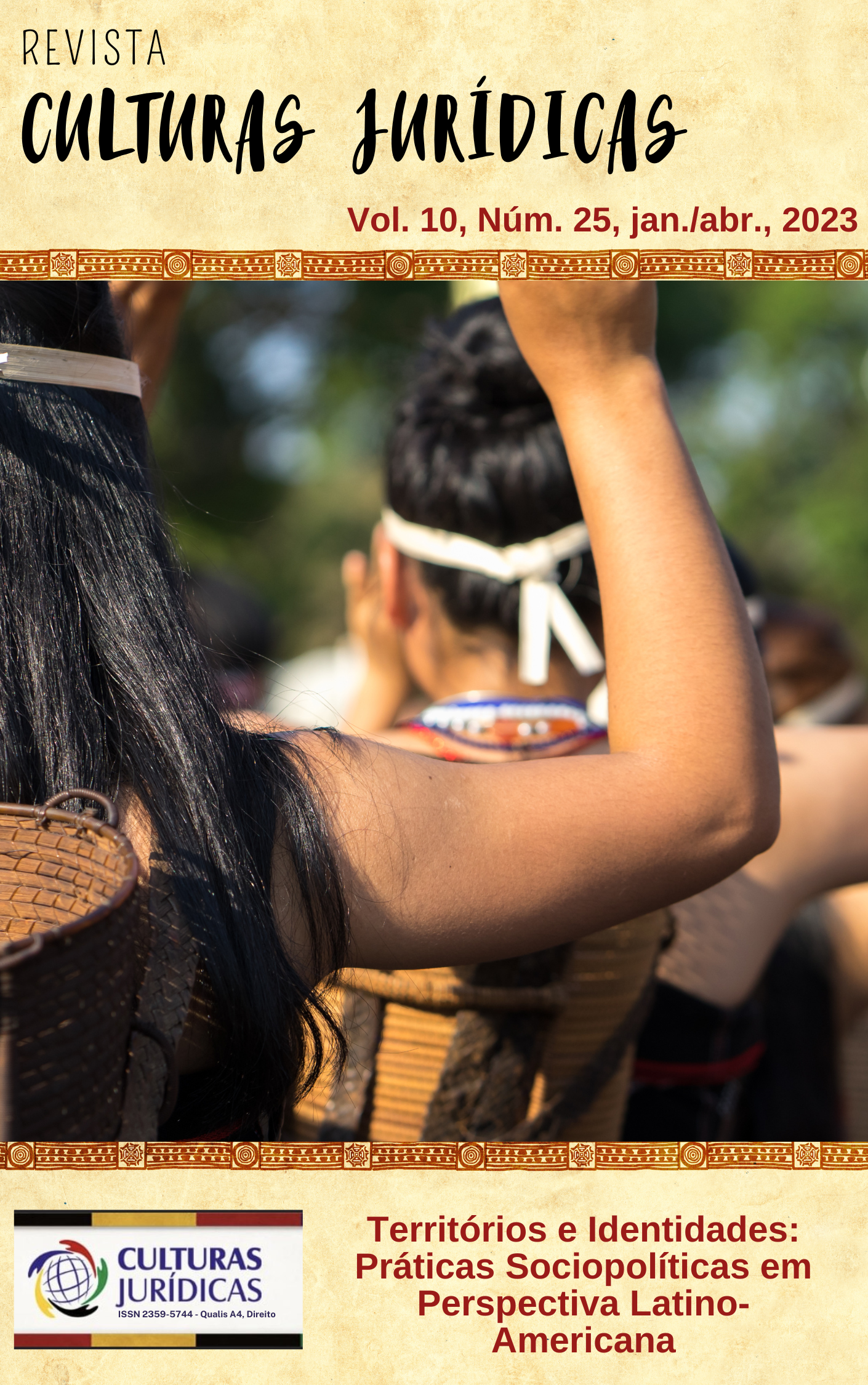RELAÇÃO JURÍDICA DEPENDENTE, TRANSFERÊNCIA DE VALOR E QUESTÃO AGRÁRIA
CONTRIBUIÇÕES PARA UMA AGENDA DE PESQUISA DOS MOMENTOS DO DIREITO NA AMÉRICA LATINA
DOI:
https://doi.org/10.22409/rcj.v10i25.56730Resumo
O presente trabalho consiste em um estudo teórico-exploratório voltado à discussão das relações jurídicas presentes na questão agrária latino-americana. Em termos mais amplos, questiona-se a viabilidade heurística da categoria "relação jurídica dependente" para compreender a forma jurídica concreta encontrada nos espaços de acumulação capitalista agroindustriais e nas áreas rurais da América Latina. Para tanto, adota-se uma metodologia de revisão bibliográfica voltada a, em primeiro lugar, apresentar a categoria de relações jurídicas dependentes como o encontro da crítica marxista à forma jurídica sob a influência de Pachukanis com a análise relacional da dependência empreendida por Ruy Mauro Marini e seus seguidores e, posteriormente, delinear as bases gerais de investigação da questão agrária na América Latina a partir da comparação entre as experiências recentes do Brasil e do México. Nesse cenário, a noção de relações jurídicas dependentes demonstra capacidade heurística de explicação desse fenômeno histórico recente, uma vez que opera em uma dimensão mais concreta da análise do direito, em busca da mediação dos seus momentos essenciais (relações jurídicas de trocas de equivalências entre sujeitos tornados iguais) e aparentes (como as normas jurídicas e as decisões judiciais efetivamente existentes), sem desperceber tanto os momentos de violação da forma jurídica equivalente (aglutináveis dentro da categoria de acumulação originária permanente) quanto a continuidade da subjetividade jurídica e das relações de troca, que se expandem até mesmo para dentro da própria sociabilidade de movimentos sociais de contestação do ciclo de acumulação do capital. Desse modo, investigar as relações jurídicas dependentes do campo latino-americano exige, enfim, a capacidade de análise tanto dos momentos de espoliação do capital quanto de suas formas de controle indireto e de cooptação do campesinato aos desígnios da produção e reprodução da forma-valor.





